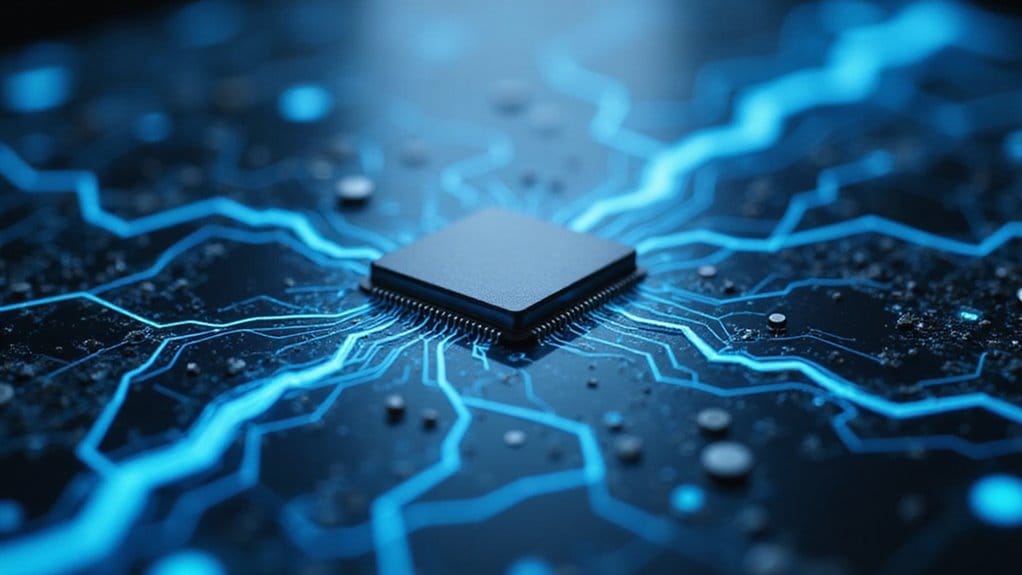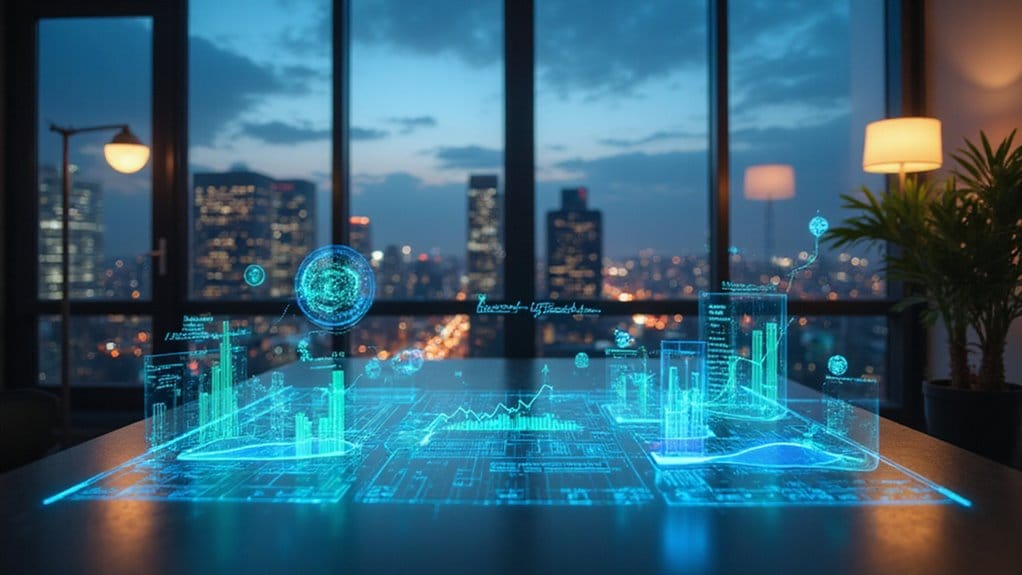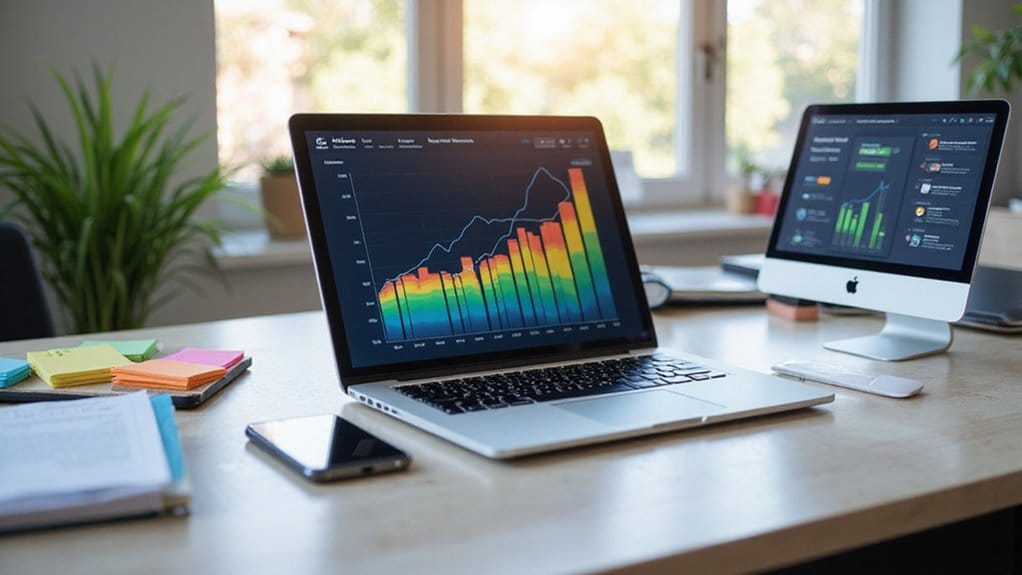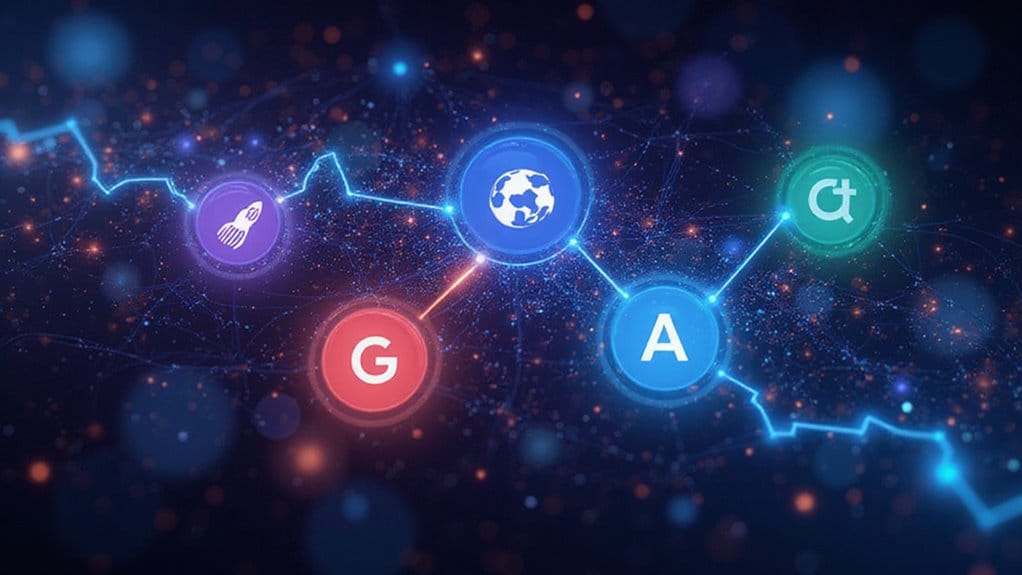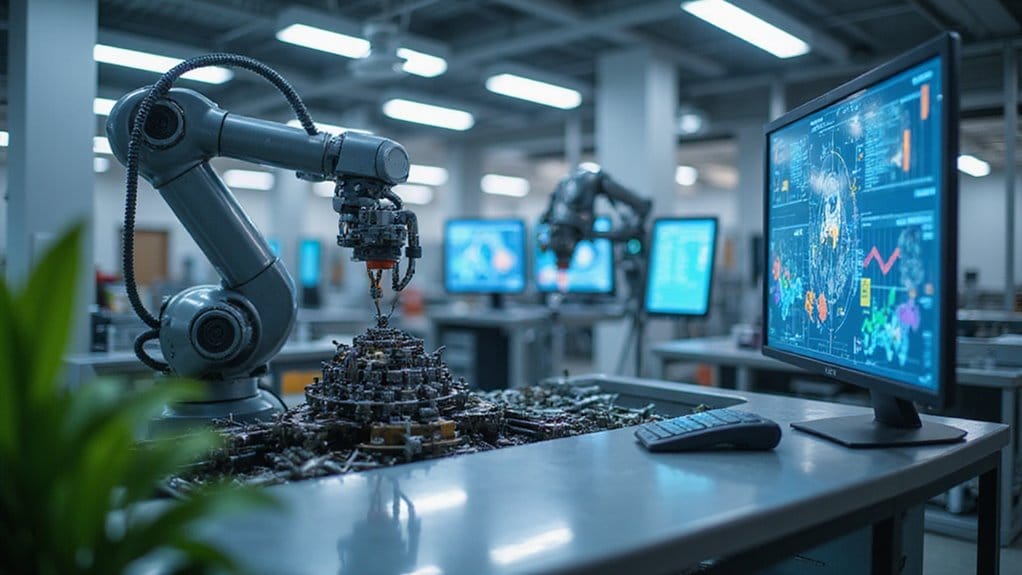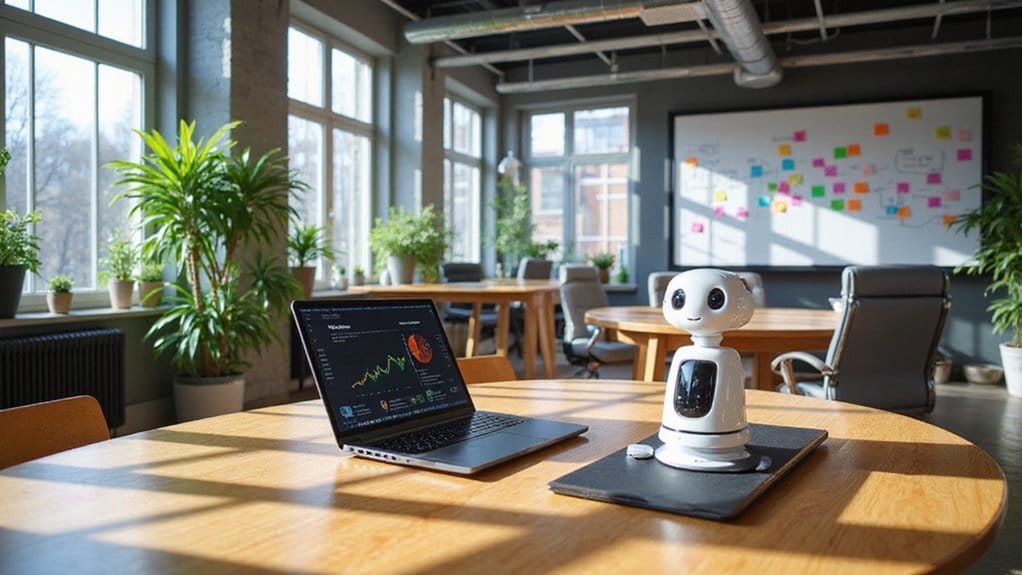Artificial Intelligence, or AI, isn’t just tech jargon; it’s the brain behind machines that think and learn like humans. Think of it as giving a toddler a massive library—they get smarter as they read! Sure, machines might navigate cities or diagnose diseases faster than a doctor. But beware! If we ignore ethics, we risk bias and unfair outcomes. Want to know how these systems are reshaping our world? Keep exploring the exciting domain of AI!
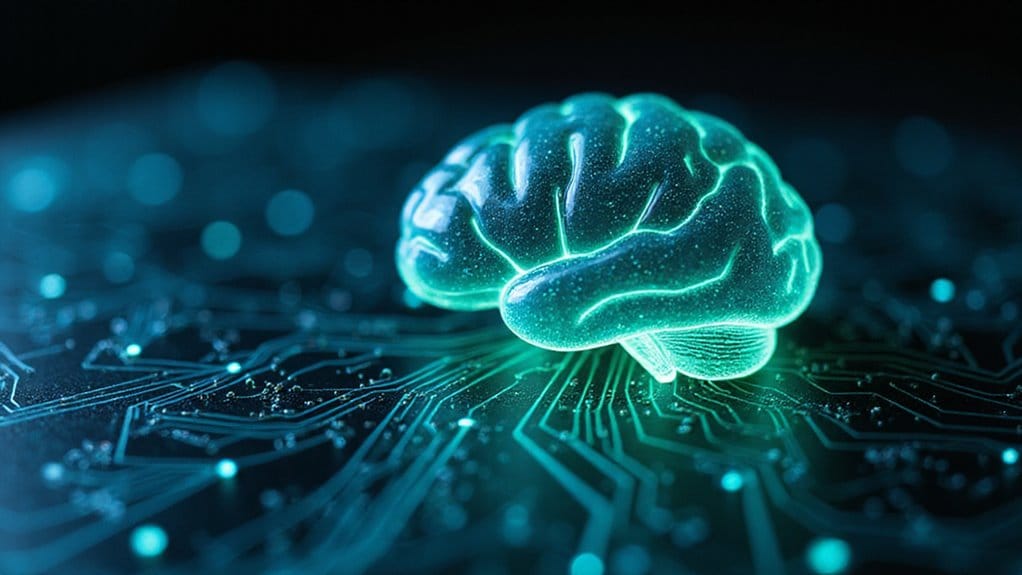
Artificial Intelligence, commonly known as AI, isn’t just a buzzword; it’s a game-changer in how machines interact with the world. Imagine a world where computers think, learn, and solve problems just like humans. That’s AI for you!
It’s not merely about following pre-defined rules; it’s about adapting and evolving through experience, thanks to incredible advancements in machine learning and neural networks.
So, what’s the deal with machine learning? Simply put, it’s a branch of AI that trains algorithms to learn from data. Picture a toddler learning to walk—each stumble is a lesson. Machine learning algorithms do the same, improving their performance over time as they consume more data. It’s like feeding a growing brain with endless information. AI enhances efficiency across various industries by streamlining processes and improving outcomes.
Machine learning empowers algorithms to learn and grow from data, much like a toddler mastering the art of walking.
Now, neural networks come into play. Inspired by the human brain, these networks consist of interconnected nodes that process data in complex ways. They’re the magic behind many AI applications, from recognizing your voice when you ask about the weather to powering self-driving cars that can navigate city streets.
Now, you might be wondering, where does this all lead? Well, the applications of AI are vast and varied. In healthcare, AI helps doctors diagnose diseases faster and provides personalized treatments. In finance, it can detect fraud before you even realize it’s happening. And in education, AI tailors learning experiences to suit individual students, making learning more engaging. Additionally, the rapid advancements in AI are transforming various sectors of the economy, further enhancing the technology’s impact.
But hold up! With great power comes great responsibility. Ethical considerations are paramount. Bias in AI systems can lead to unfair outcomes, and we need to be aware of this.
As we continue to explore this fascinating field, let’s not forget the importance of using AI responsibly and ethically.
Frequently Asked Questions
What Is the Difference Between AI and Machine Learning?
AI and machine learning are not the same; they’re related but distinct.
Think of AI as the big umbrella, while machine learning, which includes supervised and unsupervised learning, is a smaller section.
Supervised learning means training with labeled data, like a teacher guiding students.
Unsupervised learning is when the system figures things out on its own, like a curious kid exploring.
Understanding this difference is essential for maneuvering the tech world effectively.
How Does AI Impact Job Markets Globally?
AI is shaking up job markets worldwide, folks!
It’s not just about job displacement—many roles are evolving, too. Sure, some jobs might vanish, but others, like AI specialists, are popping up.
So, what’s the plan? Embrace skills evolution! Upskill yourself in critical thinking and adaptability, or risk being left behind.
Governments and companies must step up with retraining initiatives. Don’t wait—get ahead of the curve and prepare for the future!
Can AI Make Ethical Decisions?
Can AI make ethical decisions? Spoiler alert: not really.
AI lacks the moral compass needed for ethical frameworks and relies on decision-making algorithms that can inherit biases.
Sure, it can help humans by pointing out flaws, but don’t let it take the wheel!
Overreliance on AI could lead to disastrous outcomes.
What Are the Risks Associated With AI Development?
The risks associated with AI development are real and concerning.
First up, there’s AI safety—think of it as a digital wild card that can output dangerous results.
Then, consider algorithmic bias; it’s like letting a biased friend pick your playlist. The outputs can reinforce societal issues.
So, stay alert! Demand transparency, question these systems, and advocate for fairness.
Don’t let AI run amok—be proactive in understanding its pitfalls!
How Is AI Used in Everyday Life?
AI is everywhere in daily life, folks! Think smart assistants like Siri and Alexa, handling your voice commands effortlessly.
They’re not just for fun; they manage your schedules too. Then there are personalized recommendations—ever notice how Netflix seems to know your taste? That’s AI at work.
From optimizing your shopping list to making driving safer, AI is your invisible helper. Embrace it, but remember: don’t let it take over your life!
